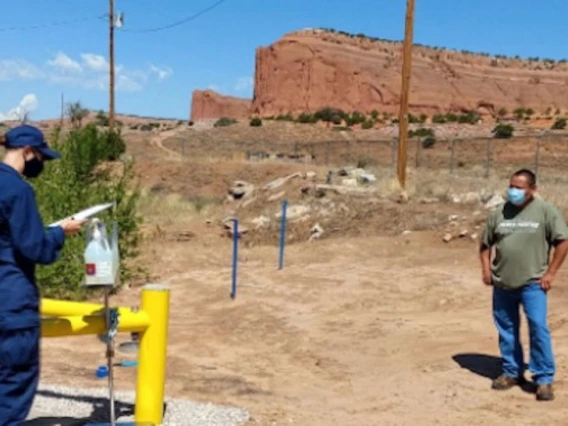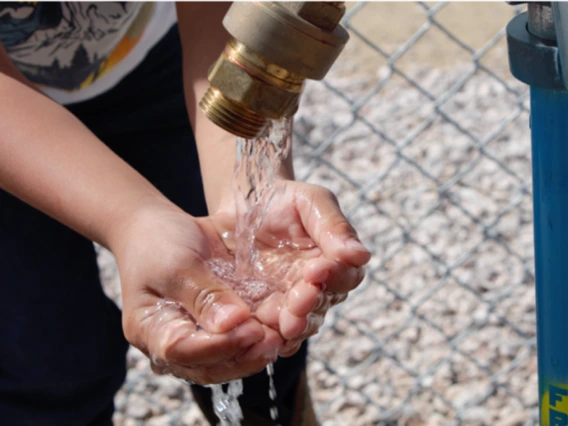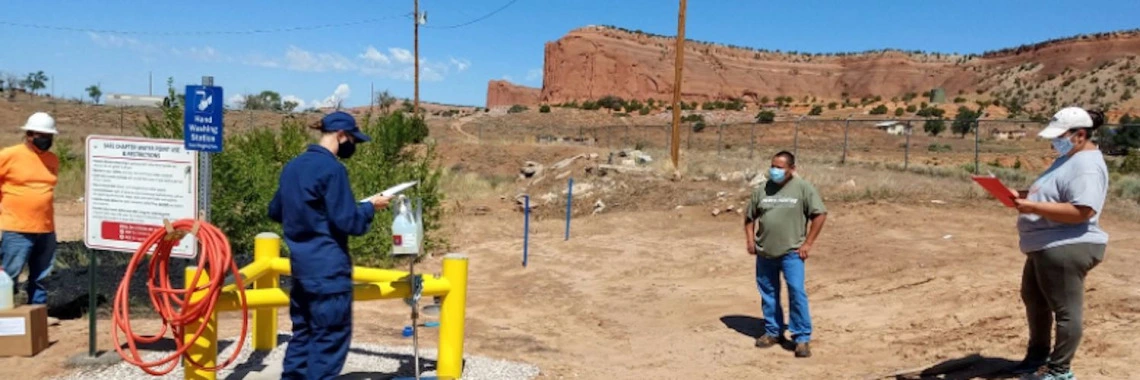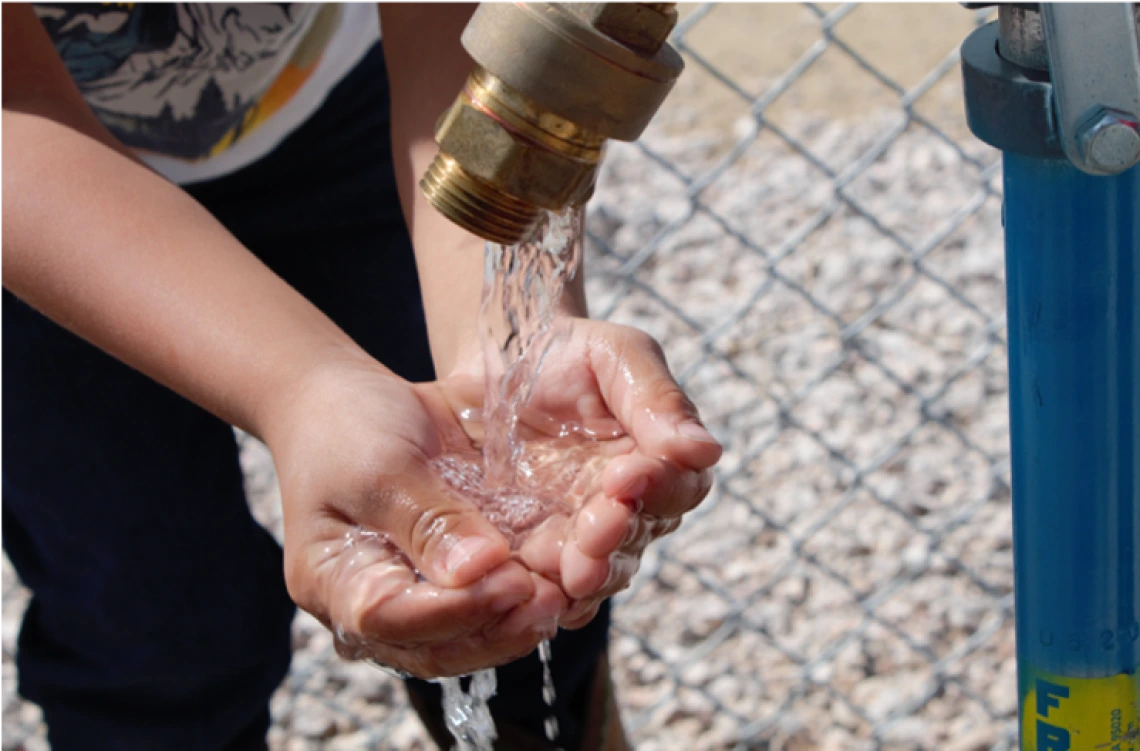The Water Access Coordination Group (WACG) work, led by the Navajo Nation and the Indian Health Service, is a significant undertaking to assess water wells and water stations at each Navajo Chapter community. The WACG's mission is to provide transitional water sites across the Navajo Nation to assist off-grid Navajo families with water needs for hand washing and quality drinking water.
 The WACG oversaw the construction of these water access sites and also designed an interactive website to raise awareness and help Navajo Nation communities to locate the new water points – where people can find free water for in-home drinking and cooking. Identifying water points is crucial since 9,650 homes on the Navajo Nation do not have piped water in their homes, and approximately 37,000 people do not have direct access to water.
The WACG oversaw the construction of these water access sites and also designed an interactive website to raise awareness and help Navajo Nation communities to locate the new water points – where people can find free water for in-home drinking and cooking. Identifying water points is crucial since 9,650 homes on the Navajo Nation do not have piped water in their homes, and approximately 37,000 people do not have direct access to water.
To support this project, The Navajo Safe Water Project was created which is a decision-making tool that aims to identify COVID-19 high-risk areas in the Navajo Nation. The project includes compiling information to create a map that combines water quality, water infrastructure, health, and socio-economic data to identify areas in the Navajo Nation that are most at risk for a COVID-19 spike due to lack of access to water, food, and energy. Read more here.
The team leaders reached agreements with the Navajo Chapters for the use of COVID-19 and water infrastructure data. The Haury Program is honored to support a portion of this planning process with a grant award as well.
Access the Navajo Safe Water Project website here.




